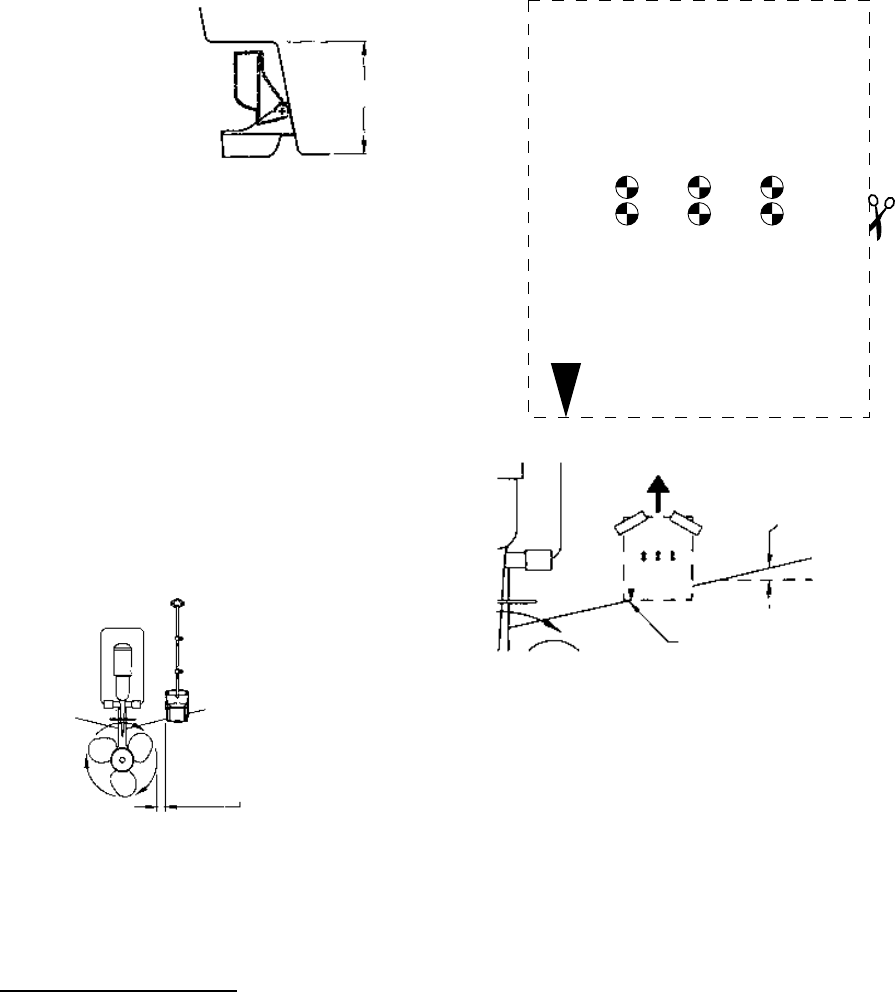
31
Height
Height without
speed sensor
191mm (7-1/2")
Height with
speed sensor
213mm (8-1/2")
Height required at mounting location
Note 1: Do not mount the sensor in an area
of turbulence or bubbles: near water intake
or discharge openings; behind strakes,
struts, fittings, or hull irregularities; behind
eroding paint (an indication of turbulence).
Note 2: Avoid mounting the sensor where
the boat may be supported during trailering,
launching, hauling, and storage.
Note 3: For single drive boat, mount on
the starboard side at least 75 mm
(3”) beyond the swing radius of the
propeller.
75 mm(3")
minimum beyond
swing radius
Mounting location on single drive boat
Note 4: For twin drive boat, mount
between the drives.
Installation of bracket
1. Cut out the installation template shown
on the left.
2. At the selected location, position the
template, so the arrow at the bottom is
aligned with the bottom edge of the
transom. Being sure the template is
parallel to the waterline, tape it in place.
P66 Installation template
for starboard side of boat
Drill at locations labeled "B"
for the following transom angles:
16° through 22°
Drill at locations labeled "A"
for the following transom angles:
2° through 15°
Align arrow with bottom of transom
AA A
BB B
Align template vertically.
Deadrise angle
Slope of hull
parallel to
waterline
Align template arrow with
bottom edge of transom.
Positioning the template
Warning: Always wear safety goggles
and a dust mask.
3. Using a 4 mm, #23, or 9/64” bit, drill
three holes 22 mm (7/8”) deep
at the locations indicated. To prevent
drilling too deeply, wrap masking tape
around the bit 22 mm (7/8”) from the
point.
Fiberglass hull: Minimize surface
cracking by chamfering the gelcoat. If a
chamfer bit or countersink bit is not
available, start drilling with a 6mm or
1/4” bit to a depth of 1 mm (1/16”).
4. If you know your transom angle, the
bracket is designed for a standard 13°
transom angle.
11°-18° angle: No shim is required. Skip
to step 3 in “Adjusting”.
Other angles: The shim is required. Skip
to step 2 of “Adjusting”.


















